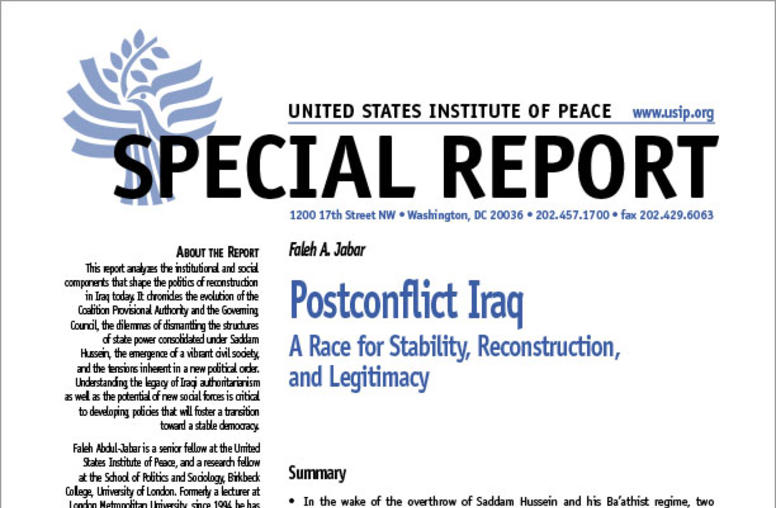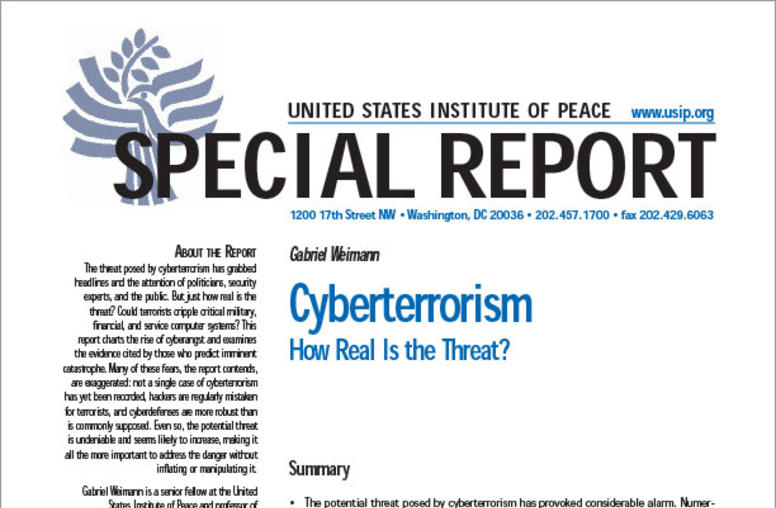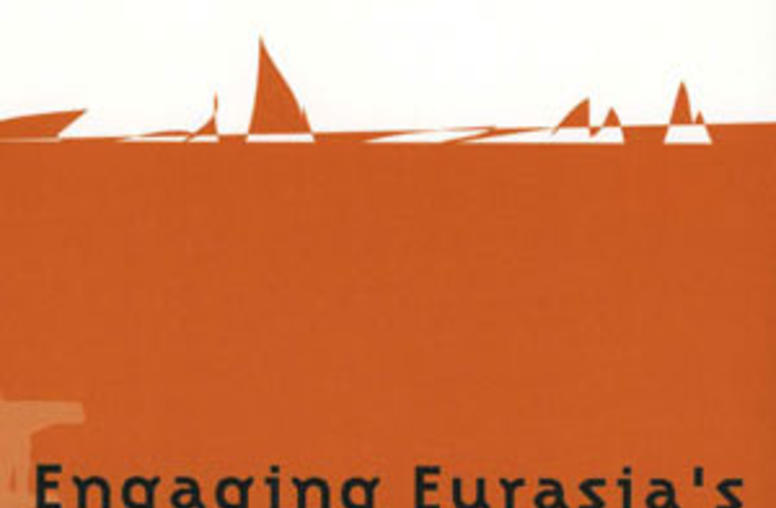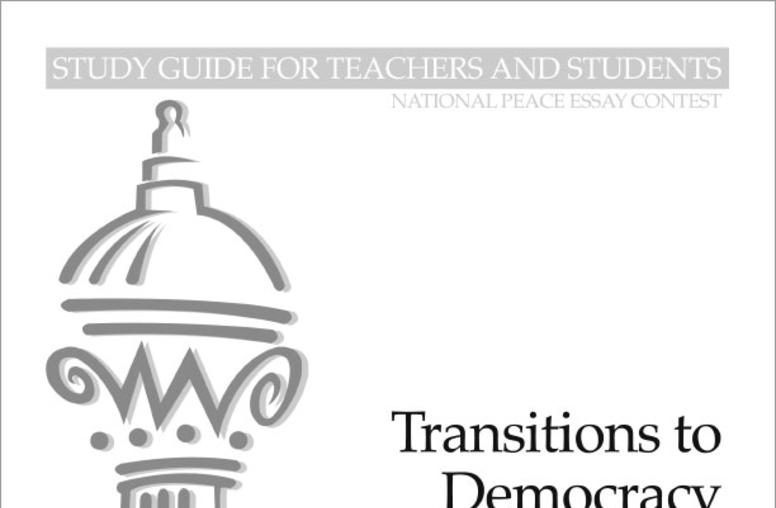Publications
Articles, publications, books, tools and multimedia features from the U.S. Institute of Peace provide the latest news, analysis, research findings, practitioner guides and reports, all related to the conflict zones and issues that are at the center of the Institute’s work to prevent and reduce violent conflict.
The Current Situation in Serbia and Montenegro
An Overview of U.S. Institute of Peace Activities to Promote Democracy and Minority Rights in Serbia-Montenegro and Kosovo

Post-Conflict Iraq: A Race for Stability, Reconstruction, and Legitimacy
This report analyzes the institutional and social components that shape the politics of reconstruction in Iraq today. It chronicles the evolution of the Coalition Provisional Authority and the Governing Council, the dilemmas of dismantling the structures of state power consolidated under Saddam Hussein, the emergence of a vibrant civil society, and the tensions inherent in a new political order.

Cyberterrorism: How Real Is the Threat?
Summary The potential threat posed by cyberterrorism has provoked considerable alarm. Numerous security experts, politicians, and others have publicized the danger of cyberterrorists hacking into government and private computer systems and crippling the military, financial, and service sectors of advanced economies.
Establishing the Rule of Law in Afghanistan
Congressional Testimony by Robert M. Perito, Coordinator, Iraq Experience Project, Professional Training Program, U.S. Institute of Peace.
Postconflict Iraq: A Race for Stability, Reconstruction, and Legitimacy (Arabic Edition)
Summary In the wake of the overthrow of Saddam Hussein and his Ba'athist regime, two main tasks have confronted the Americans and Iraqis who now hold power. One is to stabilize the country; the other is to liberalize it economically, politically, and socially. Although the requirements of stabilization have so far overshadowed progress toward liberalization, significant steps have been taken in transitioning from totalitarianism to free market democracy. Much more, however, remains to...
2003–2004 National Winner
Vivek Viswanathan Herricks High School New Hyde Park, New York Coordinator: Ms. Melissa Jacobs While the resolution of armed conflict may bring initial order within a war-torn nation, it does not guarantee long-term peace and stability. Establishing an orderly society from the ruins of war—enacting a workable political, economic, and social structure in a place where violence and instability have been the rule—is an undertaking that is necessarily complex. Moreover, the discontinuation of...

Engaging Eurasia's Separatist States
In the wake of the dissolution of the Soviet Union, secessionist forces carved four de facto states from parts of Moldova, Georgia, and Azerbaijan. Ten years on, those states are mired in uncertainty. Beset by internal problems, fearful of a return to the violence that spawned them, and isolated and unrecognized internationally, they survive behind cease–fire lines that have temporarily frozen but not resolved their conflicts with the metropolitan powers.

Transitions to Democracy
This guide from the 2004 National Peace Essay Contest assists teachers in increasing students' understanding of the nature of democracy and historic and contemporary efforts at democratization.
The Iraqi Shi'i Community: Between Sistani, Muqtada, the IGC, and the CPA
Congressional Testimony by Amatzia Baram, Senior Fellow, U.S. Institute of Peace.
Mosque and State: Religion and Politics in Iraq
A Special Discussion on Capitol Hill Sponsored by The Faith and Politics Institute and the United States Institute of Peace.